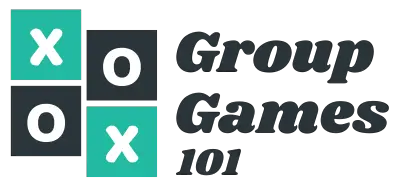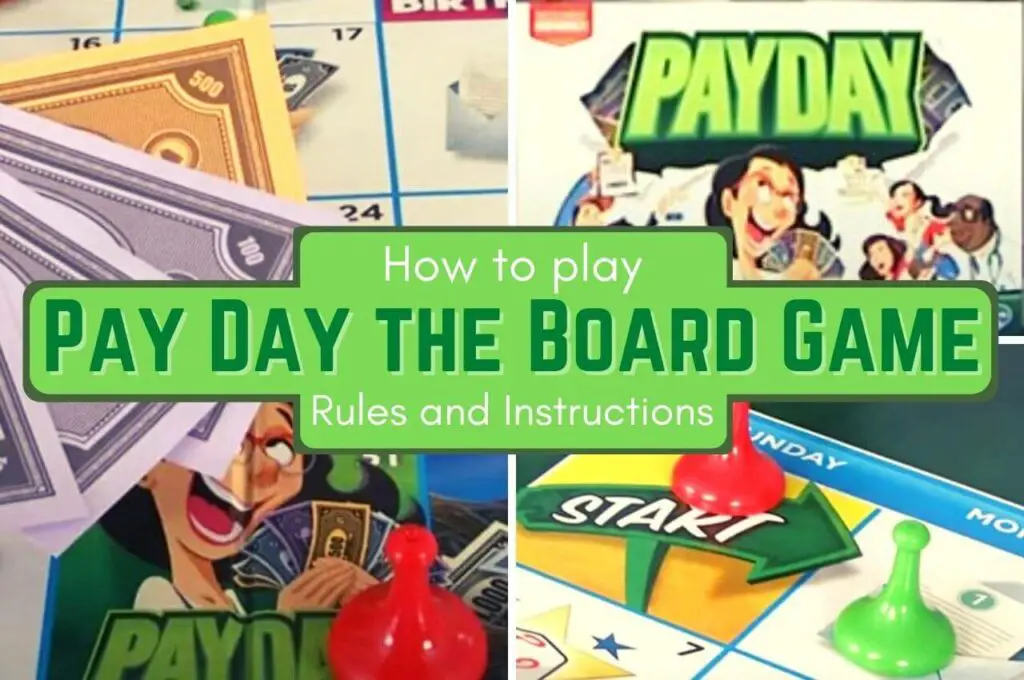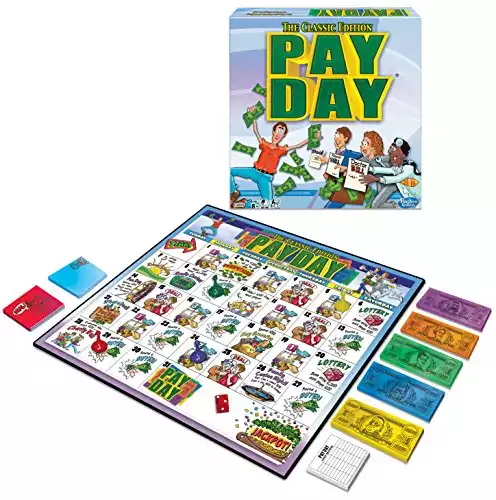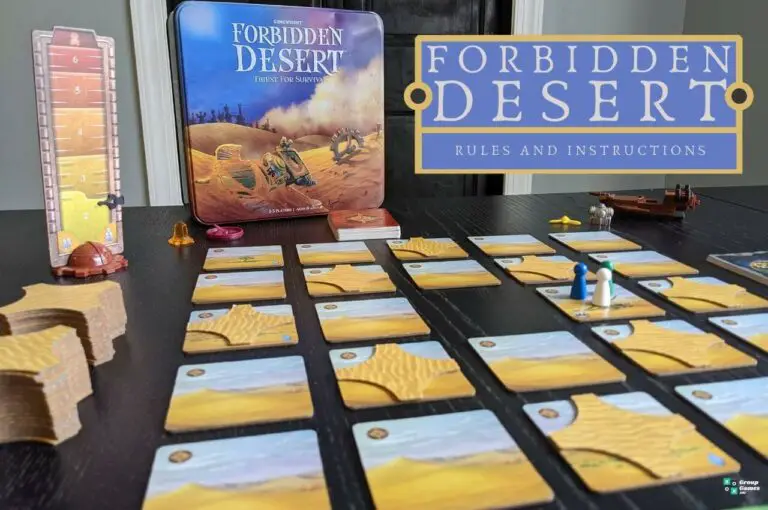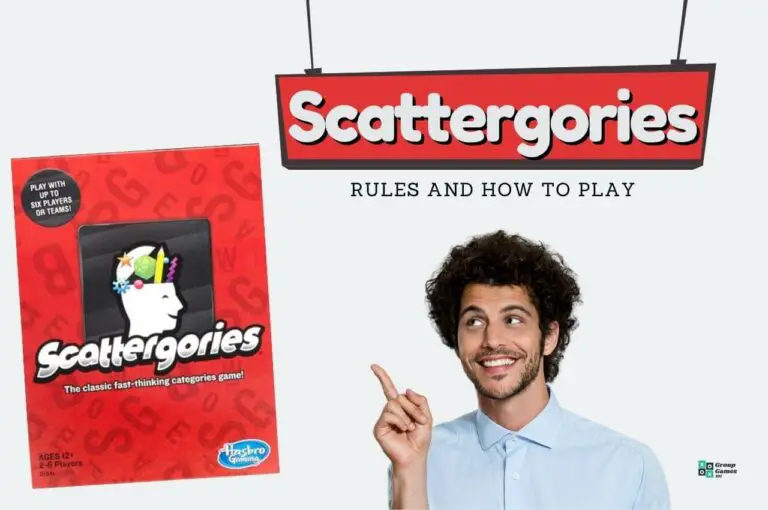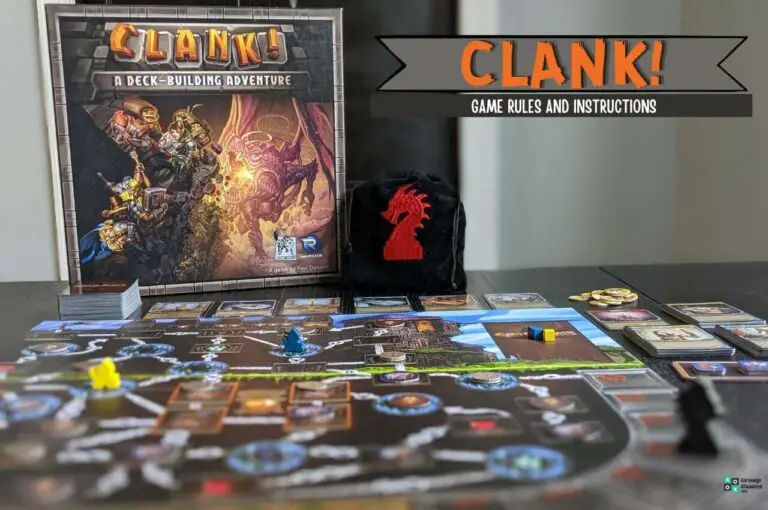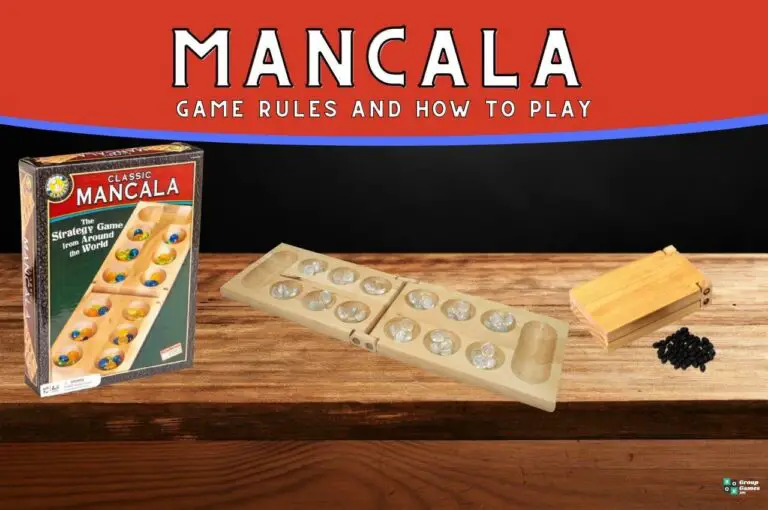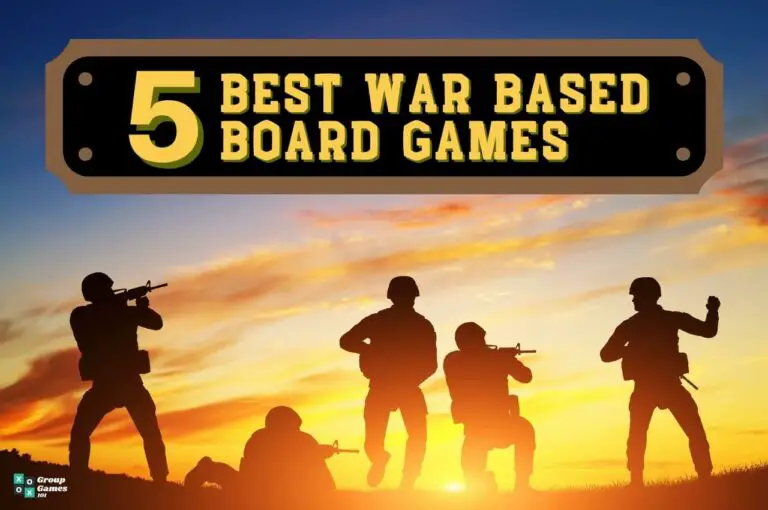Pay Day is the game that most of us have grown up playing. And the chances are high that even our parents have.
Although the game has evolved over the years in many aspects, Pay Day game rules have more or less remained the same. While the skills involved crossover with other resource management board games like Splendor, the gameplay continues to be greatly influenced by classic board games like Monopoly.
Players go through a range of different situations that involve paying bills, making deals, helping out the neighbors, and even receiving birthday gifts. The game smartly introduces concepts like interest and loans to younger players, in turn helping to educate them about the power of savings and investment.
It is a game that many older players have grown up with, which is a major reason why they love introducing the game’s new and improved version to kids.
Want to know what it’s all about? Find out all the Pay Day game rules and instructions in this fun guide.
What Is Pay Day The Board Game?
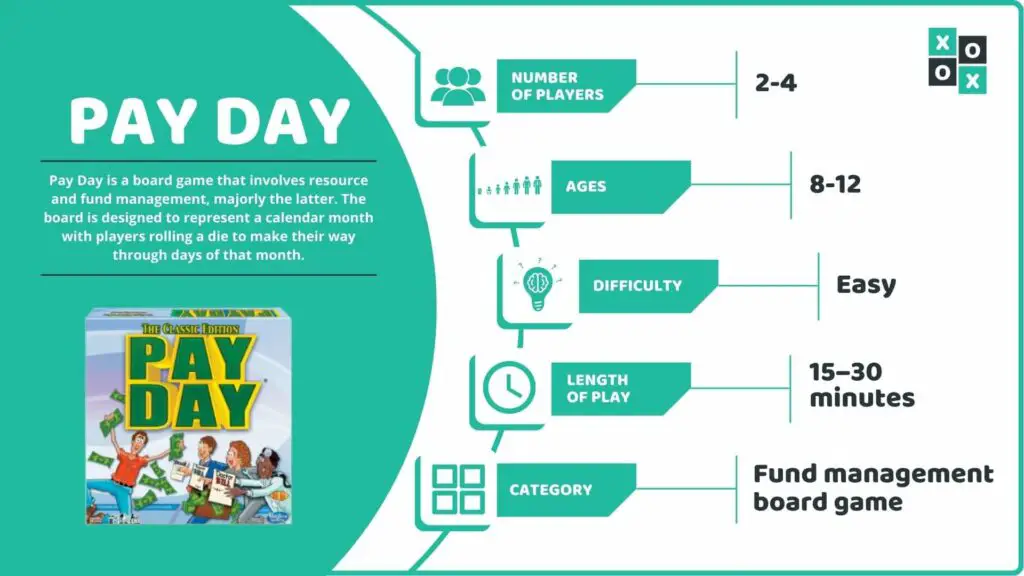
Pay Day is a board game that involves resource and fund management, majorly the latter. The board is designed to represent a calendar month with players rolling a die to make their way through days of that month. Different days bring different surprises and exciting shocks, and like it or not, each of them involves money. You just play until you reach the pay day!
Number Of Players: 2-4
Ages: 8-12
Difficulty: Easy
Length Of Play: 15-30 mins for a 3 months game.
Similar To: Monopoly | The Game of Life
Main Objective: Manage money, pay bills, make deals, and save frugally to be the player with the most money or least outstanding loan in the end.
Why We Love It: It’s an amazing way to give the kids a taste of what adulthood and its responsibilities look like. The game takes you through a series of everyday events and activities that require you to spend, invest, and earn. This also helps the kids learn fund management and the value of savings.
Looking Back At The History Of Pay Day
The invention of the Pay Day board game can be traced back to the 1970s and is known to be designed by game designing legends of that time – namely Paul J. Gruen and his brother-in-law Charles C. Bailey. Originally made by Parker Brothers, the game became an instant mega-hit and outsold the legendary Monopoly in its first year of production. Ever since Hasbro’s take over of its original makers, Pay Day has been published in several modified versions under the brand’s name.
What You Need To Play Pay Day
All you need is the complete game kit of Pay Day. You can expect a game box to have the following contents:
- Game board
- 4 mover tokens
- 1 red die
- 24 deal & 48 mail cards
- Loan pad
- Money
If you love to go for the classics, this 1975 edition Pay Day board game by Winning Moves should be your pick. However, if you would like to have a twist or two to the original game, try this version by Hasbro Gaming.
Payday Game Rules and Gameplay Instructions
At the beginning of the game, the players are distributed $3500 from the bank. The basic gameplay involves players rolling a die and moving ahead that many spaces (or days of the month). When they land on a space, they either have to follow the instructions on the spaces or have to draw cards and follow instructions on the cards.
There are two types of spaces that require drawing cards – deal and mail.
Deal Cards
These are like investments in daily life and are fairly expensive to buy. When you land on a deal space, you can buy the deal by paying or loaning the amount mentioned. Later on, any time during the game when you land on the found a buyer space, you can sell the deal for a profit.
One thing you must remember while buying a deal is that it holds no value in itself. If you fail to land on a buyer space until the end of the game, it counts for nothing in the final asset tally. So buying deals towards the end of the last month can be a risky bet.
Mail Cards
When you land on the mail space, you have to draw a mail card from the top of the pile. Mail cards can be anything useful like a birthday present or a postcard filled with money, or something completely useless like an advertisement. Regardless, the response will be natural; you accept the gifts happily and discard the useless cards without care.
There are 3 special mail cards that have rules different from the rest. These include the following:
- Pay a Neighbor: Pay the specified amount of money to a player of your choice. You can also pay this amount to a player who has already finished through the predetermined number of months.
- Mad Money: Collect the specified amount of money from a player of your choice. This can also be used to pay off part of your loan.
- Charity: Place the specified amount of money in the jackpot.
Pay Day Rules
When you land on a Pay Day or even pass through it, you have to go through each of the three steps:
- Collecting Salary: Every player receives an equal salary of $3500.
- Paying Bills: All the bills you collected during the month are paid off with cash. The bills are then placed into the discard pile.
- Paying Interest Or Increasing The Loan: You can get increments of $1000 on an existing loan in case you don’t have enough cash to pay off the bills. If you have extra cash, you can pay off your loan and the interest which is charged at 10% of the loan amount each time you visit pay day.
Winning The Game
Once all the players finish through the predetermined number of months, all the bills for the month are paid along with the loan amount that is outstanding and the interest that applies. Since this is the end of the game, the players don’t collect their salaries even though they have technically landed on Pay Day.
Finally, the cash amount left with each member is tallied. The member with the greatest amount of money remaining wins. In case all the members are in debt, the member with the least loan amount or lease amount of debts wins.
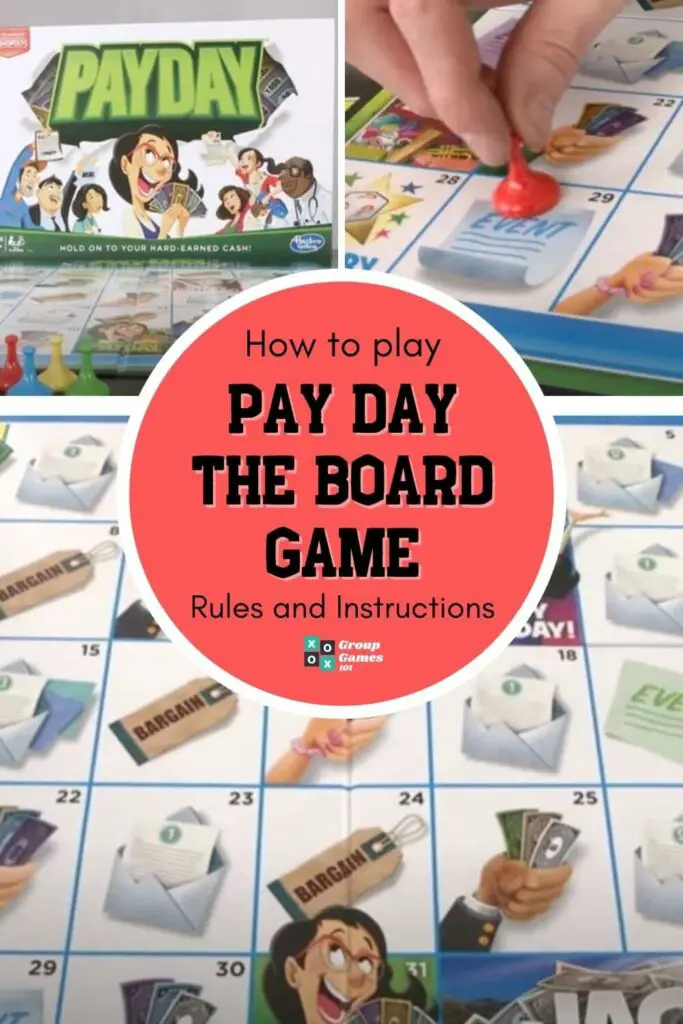
Frequently Asked Questions About Pay Day
What are the Payday game rules for the walk of charity space?
When you land on the walk of charity space, all the other players will roll the die once. The players have to deposit $100 times the number that comes up on the die into the jackpot.
What to do if players don’t have enough cash during compulsory events like townhall elections?
In spaces like townhall elections where every player has to contribute certain amounts, regardless of if they themselves land on the space or not, the player must either increase the loan or withdraw from the savings. This is an exception to the ‘landing on the Pay Day’ rule.
Which is the easiest way to earn money in the Pay Day game?
Earning money is the easiest when you passively earn it. In the game of Pay Day, this happens when you land on spaces like Sweepstakes which allows you to collect a whopping $5000. Winning the Jackpot by simply rolling a 6 on a regular turn is another exciting way to earn easy money.
Similar Board Games That You Should Try
Everyone loves board games, especially the kids! If you’re looking for similar board games that the kids might enjoy and perhaps even the rest of your family, we have a few interesting options for you.
If you want to keep the kids engaged with something similar, King of Tokyo and Monopoly Cheaters edition are interesting options to keep up with the consistency of resource management. Otherwise, why not learn the rules to 5 Minute Dungeon or the Quelf board game. That being said, if the kids are younger and need something easier and appealing, Candyland is hands down the best option.
For a fun game that you can enjoy with all age groups, Beat The Parents, Trouble, Mousetrap or Fibber. These are all made primarily for engaging the kids but can be really fun when the entire family gets involved.
Loved the variety? We have a large collection of board games you can explore for more ideas!
